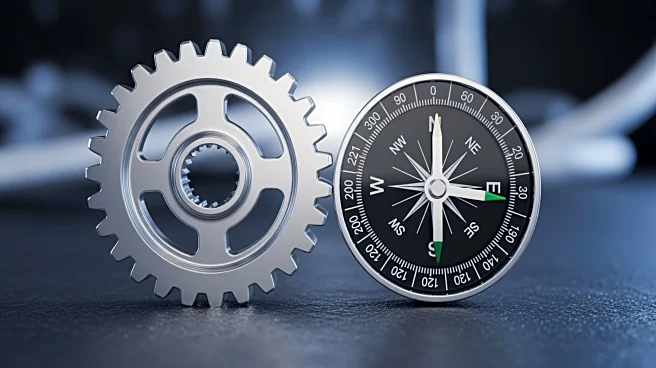What's Happening?
The 'Stack Dating' trend, popularized on TikTok, involves scheduling multiple dates in a single day or fitting them into one's daily routine. This approach, also known as 'errand dating,' is embraced by
Gen Z as a way to optimize their dating lives. According to Tinder's 2023 Future of Dating report, about half of Gen-Zers are looking for ways to integrate dating into their schedules, with 32% admitting to going on dates during work hours. The trend has sparked discussions on social media, with users sharing success stories of meeting multiple people in a short span. However, experts express skepticism, suggesting that this method may prioritize efficiency over genuine emotional connection.
Why It's Important?
The rise of 'Stack Dating' reflects broader societal shifts towards efficiency and multitasking, particularly among younger generations. This trend could impact traditional dating norms, potentially leading to more transactional relationships. While it offers the advantage of reducing pressure and providing perspective, it may also hinder the formation of deep connections. Experts warn that the focus on scheduling could lead to premature rejection of potential partners and decision paralysis. The trend highlights the evolving nature of dating in the digital age, where technology and social media influence personal relationships.
What's Next?
As 'Stack Dating' continues to gain traction, it may prompt further analysis and debate among relationship experts and psychologists. There could be increased scrutiny on how such trends affect emotional well-being and interpersonal dynamics. Dating platforms might adapt to accommodate this trend, offering features that facilitate quick meetups. Additionally, individuals may need to balance efficiency with emotional depth, ensuring that dating remains a meaningful pursuit rather than a checklist activity.
Beyond the Headlines
The 'Stack Dating' trend raises ethical questions about the commodification of personal relationships. It challenges traditional dating practices, potentially leading to a cultural shift where efficiency is valued over emotional investment. This trend may also influence how individuals perceive vulnerability and intimacy, as shorter interactions could limit opportunities for genuine connection. The long-term implications could include changes in how society views dating and relationships, with potential impacts on marriage and family structures.









